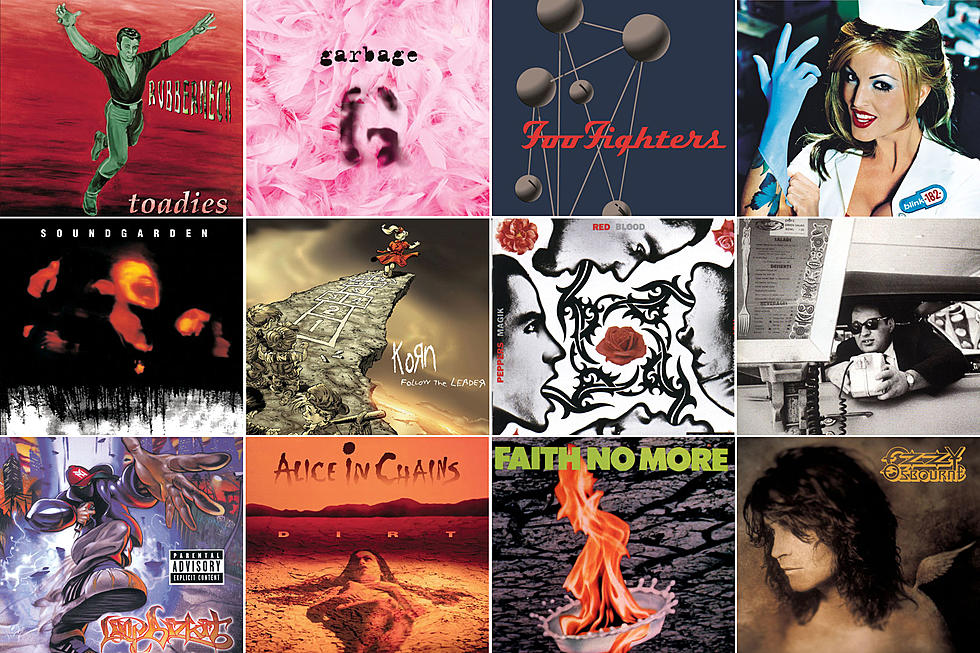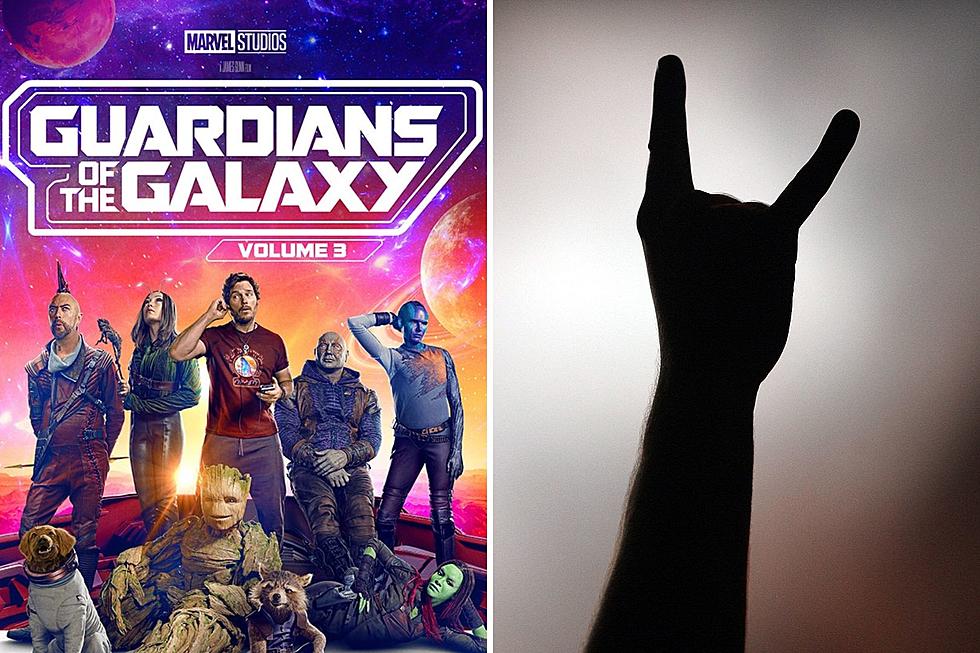
22 Years Ago: Beastie Boys Kick It Root Down With ‘Ill Communication’
It took some time for the world to catch up to what the Beastie Boys were doing in the late ’80s and early ’90s, but by 1994 when the iconic NYC hip-hop trio dropped Ill Communication, their fourth studio full-length, a victory lap was in order. Free to hold nothing back, the record is a 20-track bouillabaisse of everything the B-Boys musically love.
And it turns out, that encompasses a lot: Besides their rhyme-tastic brand of East Coast rap, there’s also funk, jazz, noise rock and even jagged hardcore all coexisting seamlessly on the album. Back in ’94 no matter how you wanted to play it, the B-Boys had game.
Of course, rhymes have always been the most crucial component of that game, and on Ill Communication the rap tracks stand tall, even among the band’s all-time hits. Opening cut “Sure Shot” is one of those all-stars, built upon a wicked flute loop and instant-head-bob beat. Another rap showcase (and single) was “Root Down,” which again, is as good as anything they’ve done, with thumping bass and wah-soaked guitars elevating the song into a vintage funk-rap jam.
Other hip-hop centric moments benefited from the highly collaborative nature of the record, which featured a host of B-Boy buddies. More than just vanity appearances, the guest spots on Ill Communication truly enhance the compositions, especially “Get It Together,” featuring inimitable Tribe Called Quest rapper Q-Tip. And who doesn’t love Biz Markie? His staccato, guttural bellow provides the perfection punctuation for “Do It.”
Elsewhere, there are folks lending musical touches, like percussionist Eric Bobo, “Keyboard Money Mark” Nishita on keys and organ, or drummer Amery “AWOL” Smith. Co-producer Mario C., another frequent Beasties collaborator, also played a considerable role once again, rounding out a diverse team that in all helped make the album as eclectic as it is.
The record also carries on the Beastie’s longstanding tradition of picking up instruments and rocking out, which hearkened back to their early days as a NYC hardcore band and continued to evolve from there. Most notably, that ethos produced the immortal rager “Sabotage,” and its hilarious Spike Jonze-produced accompanying video, but the tracks “Tough Guy” and “Heart Attack Man” were similarly frenetic. The B-Boys knew how to take it down, too, and so there are also a number of slow funk jams on Ill Communication, like the grainy ’70s groove of “Sabrosa.” The late MCA’s fretless bass adds extra authenticity to the funkier moments.
But the trio’s artistic broadening didn’t end there. Lyrically, the album also features a kinder, gentler, more spiritual Beasties than in the past—indeed, a very ’90s mindset—where women’s rights and the cause for Tibetan freedom are given equal measure. MCA, aka Adam Yauch, was the most vocal on the album to this end, acknowledging he’s on a soapbox, but still talking the opportunity to say things like “the disrespect to women has got to be through” on “Sure Shot.” Later in 1996, Yauch organized the Tibetan Freedom Concert, a two-day festival at Golden Gate Park in San Francisco that attracted 100,000 attendees.
When Ill Communication was released, critical and fan response was a lot different than in the past. For example, when Paul’s Boutique dropped in 1989, at first it was considered a commercial failure, especially after the low-brow appeal of License To Ill, and only later became a cult classic. With Ill Communication, however, the pump was primed: The album became the band’s second LP to top the Billboard 200, it peaked at No. 2 on the R&B/hip hop chart, and also became the Beasties’ second triple-platinum album. As a single, “Sabotage” was a modern-rock hit, driven in part by the success of the video, while “Get It Together” reached Top 10 on the Billboard dance charts. The album proved time and again that it had something for all current tastes.
The group’s dominance continued, albeit at a lessened pace. It would be four years before the band would issue another studio release, dropping Hello Nasty in 1998, and then six years passed between that album and its successor, To the 5 Boroughs, which was released in 2002. The band only pressed two more LPs in the ensuing decade (2007's The Mix-Up and 2011's Hot Sauce Committee Part Two) before Yauch passed away in 2012.
So in a sense, Ill Communication is really the last “classic” Beastie Boys album, and as such, it’s the perfect closer for an era. To this day the album remains a near-perfect representation of the extremely diverse range of things the Beastie Boys did well, with a swagger and soul that still never fails to make booties shake. It’s simply an album for the ages, by one of hip-hop’s all-time finest.
Worst to First: Every Beastie Boys Album Ranked
More From 94.3 WCYY








